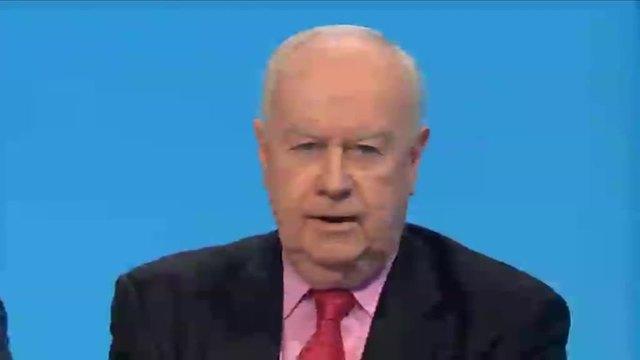
THE trouble with Kevin is that he's unfit to govern. On that his former colleagues are right. And when no less an authority than Stephen Conroy thinks you're certifiable, the home for the bewildered surely beckons.
Yet he's back. Why is clear enough. Virtually everywhere, democratic politics is more competitive than it has ever been. With social class and ideology weakening as determinants of voting patterns, fewer and fewer voters are rusted on to particular parties. The mistakes parties make are therefore punished more quickly and harshly, with electoral wipe-outs becoming common in the advanced democracies.
But it was not only the threat of decimation that unnerved federal Labor: it was the prospect of having to rebuild, for the first time in living memory, without control over any major state or a strong union movement to cushion the fall.
Yes, changing leader might not prevent Labor losing the election. It would, however, avoid Coalition control of the Senate, giving an obstructionist opposition a chance to condemn an Abbott government to a short, unhappy life.
Dumping Julia Gillard was therefore rational. But the difficulty is that Rudd has form. This is the man who converted a stunning victory in 2007 into virtual defeat three years later. Incapable of setting priorities, reckless when caution was called for and paralysed when decisiveness was required, his administration was a lesson in disaster.
Instead of a consistent approach to asylum-seekers, he flip-flopped between compassion and harshness. Instead of pursuing his emissions trading scheme, he panicked, shifting to a poorly judged blitz at hospital funding. Instead of tax reform, he sat on the Henry report and then tried to ram through its most questionable recommendation.
And instead of prudent economic management, he presided over an unprecedented increase in spending for no measureable improvement in outcomes, while unleashing a stimulus package that was disproportionate, inflexible and riddled with poor quality programs.
All that is unsurprising. For unlike successful prime ministers, Rudd lacks any coherent view of the world. Cast in terms of excruciating difficulty, his replies to questions wrap the vacuous in the impenetrable. As for his essays, which have never risen above irritable mental scratchings masquerading as insights, they make reading the logically structured telephone directory a relief.
That is not to suggest ideas are the grappling hooks of politics; but without a disciplined intellectual framework, no prime minister can steer through the whirlwind of events. It was not because Rudd disdained proper process that his policies made no sense; he disdained proper process because he invariably championed policies any sensible process would rule out.
But these seem mere symptoms of Rudd's underlying persona, whatever that may be. Gillard never succeeded in achieving sincerity, much less authenticity, in her presentation of self; but with Rudd, it has always been uncertain whether there really is a self there.
Rather, lurching between incomprehensible jargon and theatrical ockerisms, he is reminiscent of Nietzsche's description of a man who is just a succession of masks, doomed to an "irreconcilable antithesis between an interior which corresponds to no exterior and an exterior to which no interior corresponds".
And Nietzschean too is his "will to power" with its passion for vengeance and hunger for crises, as only "dancing beside abysses" allows the Ubermensch to transcend the "mechanistic stupidity" of everyday necessity.
Little wonder then that, pressed by Tony Abbott to apologise for the deaths caused by the pink batts program, he refused: as Dostoevsky's Raskolnikov said, it is beneath the Napoleons of this world to admit regret for their deeds. The furthest they can go is to express collective remorse for the sins of the fathers, thereby highlighting their own moral superiority.
And little wonder too that Rudd shows no sign of having changed. On the contrary, in merely four days, he has been as erratic as ever: one moment he recognises that the end of the resources boom makes competitiveness paramount; the next, he imposes punitive restrictions on 457 visas. Back also is the uncontrollable exaggeration, claiming a policy he once advocated would trigger war with our largest neighbour. And so is the utter disregard for the facts, justifying the National Broadband Network on the basis that "a bunch of Chinese students in Brissy said to me 'what is it about your local broadband speeds Kevin?' ", despite Brisbane's broadband speeds being multiples of those in China.
Yet whatever honeymoon Rudd enjoys in the polls cannot disguise the circumstances he faces. The constraints are obvious: a dangerously volatile world economy; slowing domestic growth; a precarious fiscal position; and promissory notes issued to a slew of programs funded to barely half their costs.
The longer he postpones an election, the more those constraints will close in on him. And to navigate them, he will have to swim through waters he has poisoned. The predators he will meet there are hardly insubstantial; rather, they include his party's most senior members. True, his proven reputation for payback may slow their pace; sooner or later, however, they will do to him what he did to them.
But in Rudd's internal visions, that is not what lies ahead. Instead, he sees himself as the reincarnation of Andrew Fisher, the great Labor prime minister who led three governments (1908-09, 1910-1913, 1914-15) and whose gold pen he owns. His triumph over Gillard will only strengthen his conviction that he is ordained to replicate Fisher's glory.
But the unassuming Fisher, meticulous about fact and process, is as removed from Rudd as the Australia of a century ago is from today's. Nor can any amount of messianic delusion bridge that gap. Always the I of the storm, the future of the Nambour Overman promises to be no less troubled than his past.



